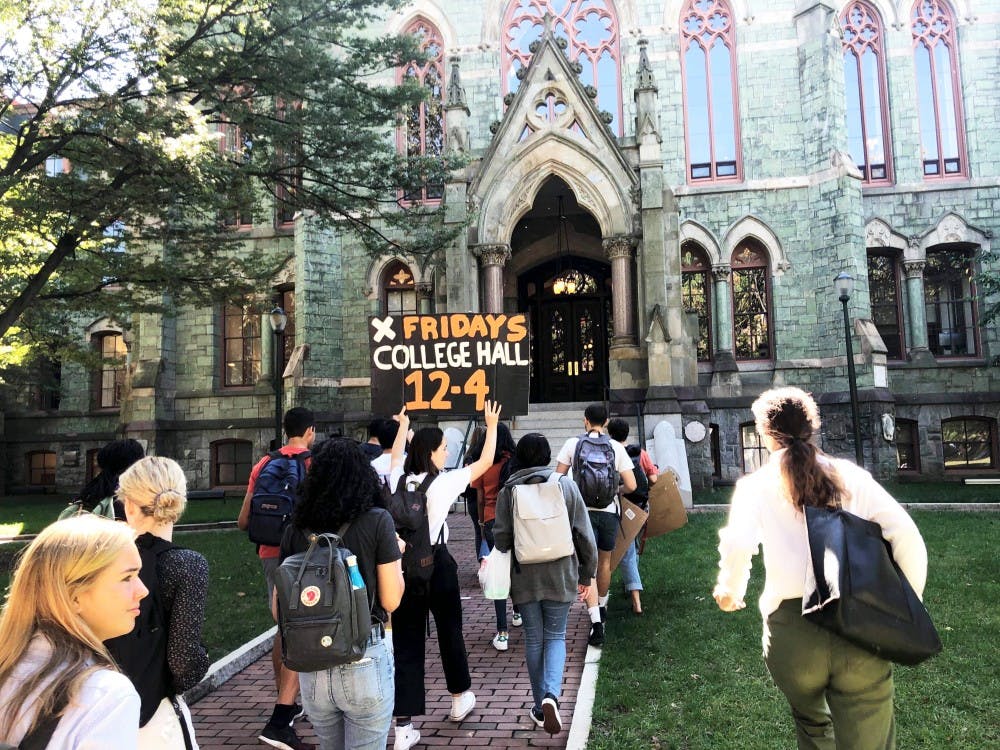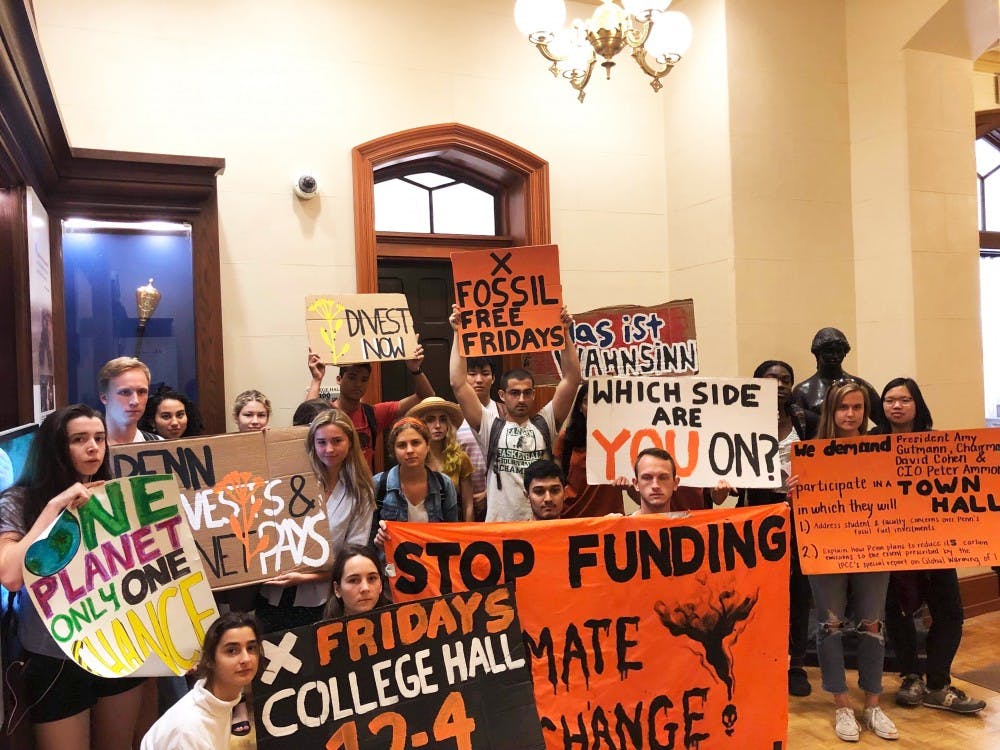
The first sit-in took place Sept. 27 outside the office of Penn President Amy Gutmann. (Photo from Aditya Siroya)
Fossil Free Penn will host weekly silent sit-ins every Friday at noon in College Hall, with the intent of pressuring the University to address the climate crisis “to the extent that science and justice demand,” according to the group's page.
The first sit-in took place on Sept. 27 outside the office of Penn President Amy Gutmann, with about 40 students and faculty members in attendance. Attendees spoke about their relationships to the cause and drafted an email to key administrators, with a demand for a public town hall where students can engage with administrators on fossil fuel divestment and Penn's plan to reduce carbon emissions.
FFP Actions Coordinator and College senior Jacob Hershman read aloud a prewritten email of their demands to Gutmann, Chairman of the Board of Trustees David Cohen, and Chief Investment Officer Peter Ammon. Hershman sent the email to the administrators, which contained a promise that the student activists were prepared to continue to show up and fight for divestment "until the end of time."
After the email was sent, students sat in College Hall for hours, many working on their laptops or speaking quietly to each other to pass the time.
“We want everybody to be there with us,” FFP Coordinator and College sophomore Emma Glasser said. “Students, faculty, staff. We all have a right to a livable future, and that’s what we’re fighting for.”

The University rejected Fossil Free Penn proposals on full divestment and divestment from coal and tar sands, most recently in 2018. (Photo from Aditya Siroya)
FFP, which organized at the Philadelphia climate strike earlier this month, credits Swedish climate activist Greta Thunberg for their new direct action strategy, FFP Campaign Coordinator and College sophomore Maeve Masterson said. Fridays for Future is an international movement of school students who take time off from class in order to demand climate action and engage in demonstrations.
Glasser claimed Penn must be invested in fossil fuels because of the rejection of multiple divestment proposals from FFP. In past years, FFP has submitted two divestment proposals, one asking for full divestment from fossil fuels and the other on divestment from coal and tar sands companies.
"Both of those were rejected, the second one was refused to even be reviewed," Masterson said. "Now we’re employing a more action-oriented tactic, riding on the wave of divestment movements from across the country.”
Every semester, group members have also attended Board of Trustees meetings to participate in silent sit-ins.

College sophomore and Fossil Free Penn Campaign Coordinator Katie Collier
The University has established efforts to reduce carbon emissions. Penn Sustainability has set emissions goals for Penn through Climate Action Plans. Penn’s Climate Action Plan 2.0, released in 2014, puts the University on track to have a zero net carbon footprint by 2042.
Campaign Coordinator and College sophomore Katie Collier said Collier said while the efforts of the University’s Sustainability Office are admirable, adequate steps are not being taken to reduce Penn’s carbon emissions to the extent that the Intergovernmental Panel on Climate Change special report requires.
The IPCC Special Report, released in October 2018, details the impacts of global warming to a temperature of 1.5°C above pre-industrial levels, and states that without urgent reduction in emissions, the planet will experience climate crisis to a catastrophic and irreversible degree by 2030.
"It became a call for action that we need to drastically reduce our carbon emissions in order to avert climate catastrophe," Collier said.
FFP has sit-ins scheduled for every Friday through the academic year, Glasser said.
The Daily Pennsylvanian is an independent, student-run newspaper. Please consider making a donation to support the coverage that shapes the University. Your generosity ensures a future of strong journalism at Penn.
Donate







